Roberto Carlini
On the Evolution of Syntactic Information Encoded by BERT's Contextualized Representations
Feb 10, 2021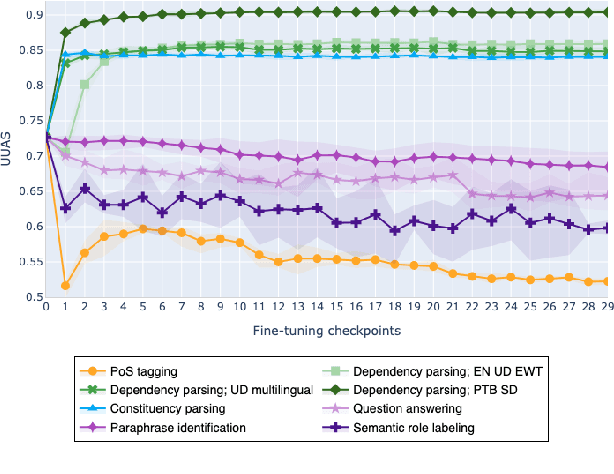
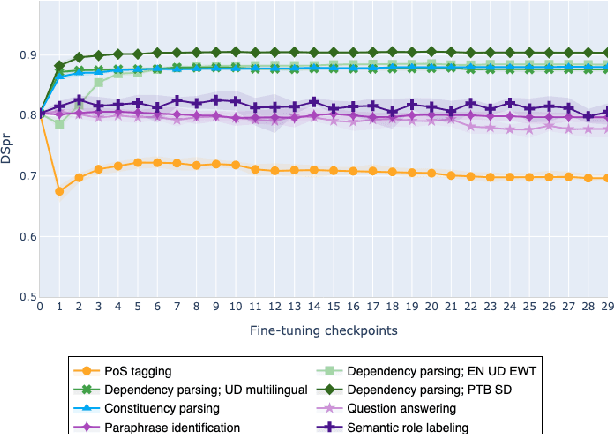
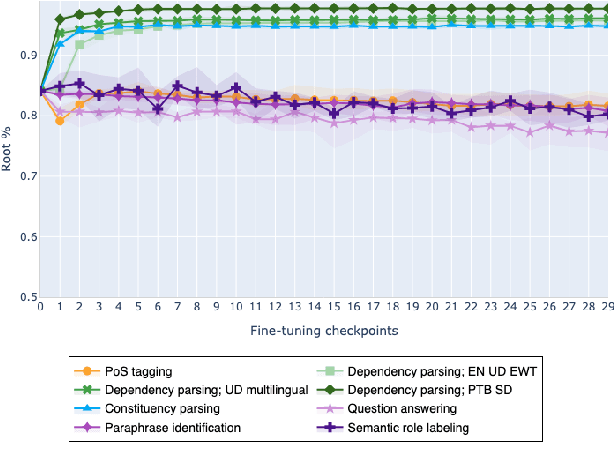
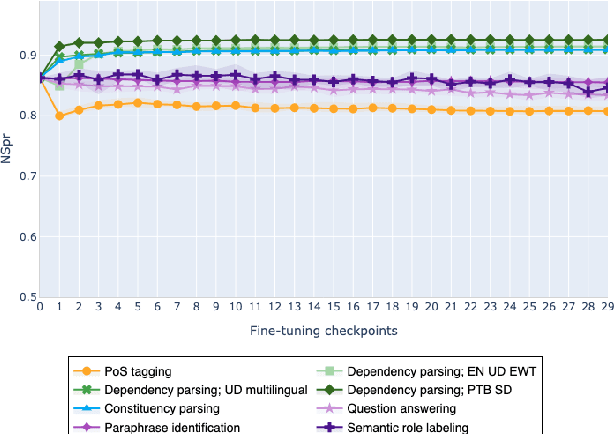
Abstract:The adaptation of pretrained language models to solve supervised tasks has become a baseline in NLP, and many recent works have focused on studying how linguistic information is encoded in the pretrained sentence representations. Among other information, it has been shown that entire syntax trees are implicitly embedded in the geometry of such models. As these models are often fine-tuned, it becomes increasingly important to understand how the encoded knowledge evolves along the fine-tuning. In this paper, we analyze the evolution of the embedded syntax trees along the fine-tuning process of BERT for six different tasks, covering all levels of the linguistic structure. Experimental results show that the encoded syntactic information is forgotten (PoS tagging), reinforced (dependency and constituency parsing) or preserved (semantics-related tasks) in different ways along the fine-tuning process depending on the task.
DefExt: A Semi Supervised Definition Extraction Tool
Jun 08, 2016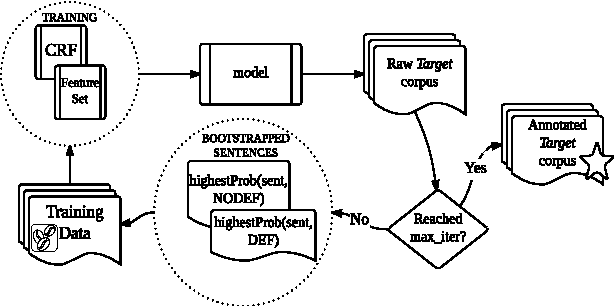
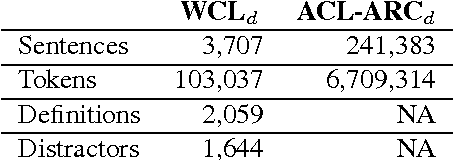
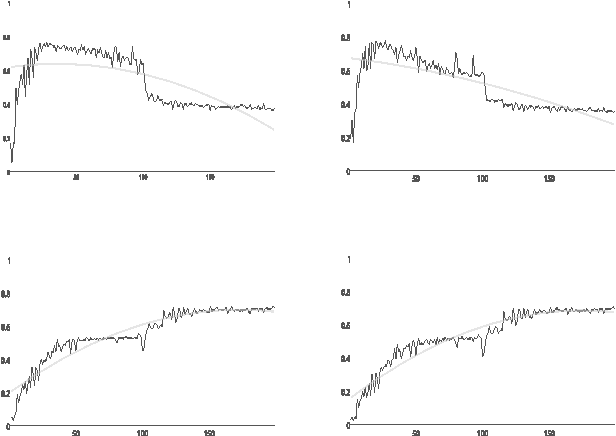
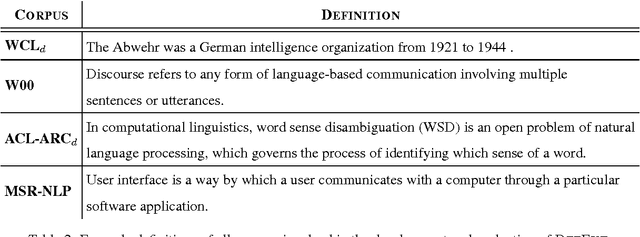
Abstract:We present DefExt, an easy to use semi supervised Definition Extraction Tool. DefExt is designed to extract from a target corpus those textual fragments where a term is explicitly mentioned together with its core features, i.e. its definition. It works on the back of a Conditional Random Fields based sequential labeling algorithm and a bootstrapping approach. Bootstrapping enables the model to gradually become more aware of the idiosyncrasies of the target corpus. In this paper we describe the main components of the toolkit as well as experimental results stemming from both automatic and manual evaluation. We release DefExt as open source along with the necessary files to run it in any Unix machine. We also provide access to training and test data for immediate use.
 Add to Chrome
Add to Chrome Add to Firefox
Add to Firefox Add to Edge
Add to Edge